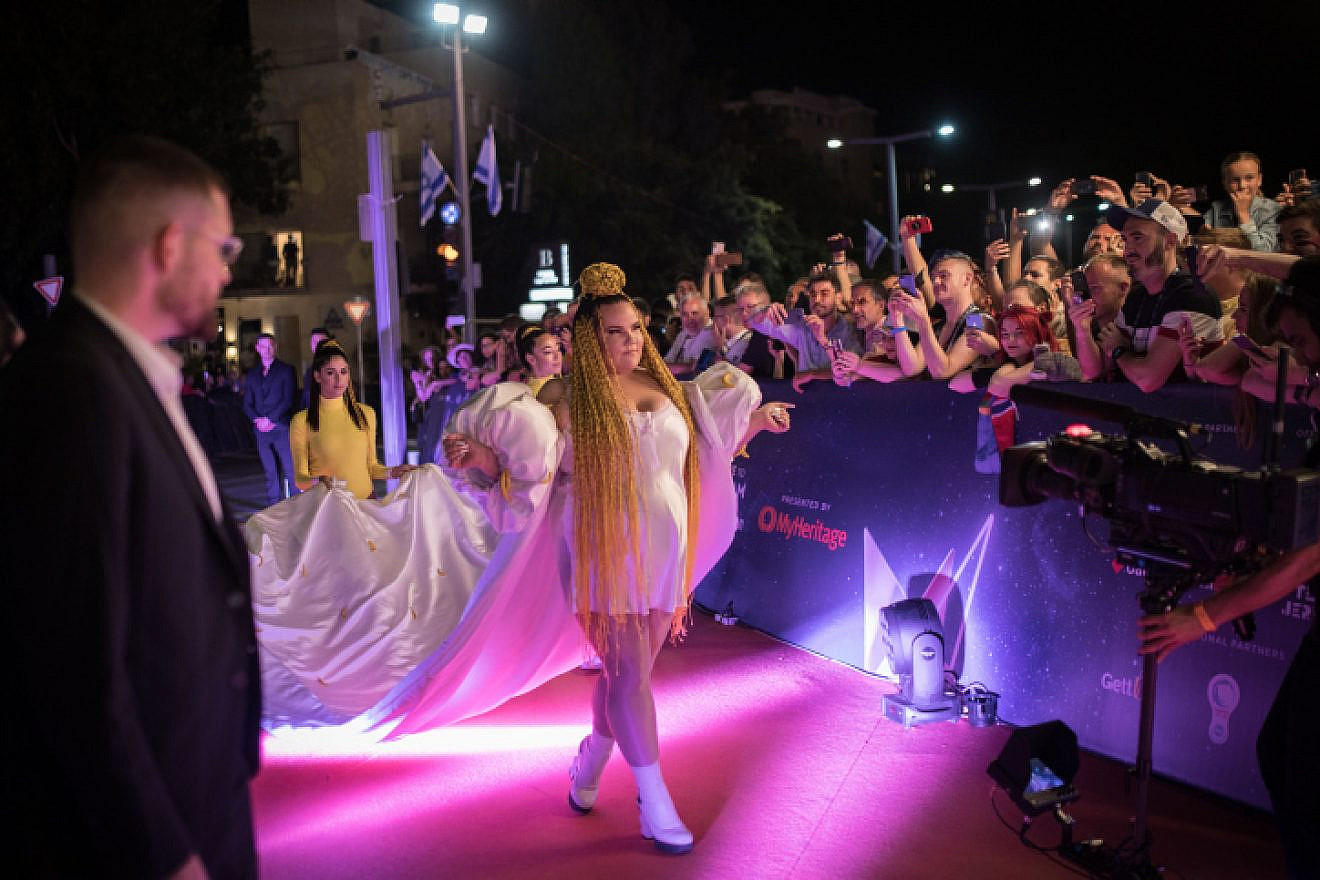Organizers of the Eurovision Song Contest on Thursday reaffirmed that Israel will be allowed to compete amid the war against Hamas, rejecting parallels drawn by pro-Palestinian activists with Russia’s exclusion from the competition over its invasion of Ukraine.
“Comparisons between war and conflict are complex and difficult and, as an apolitical media organization, it is not our place to make them,” Noel Curran, director-general of the European Broadcasting Union (EBU), which organizes the annual musical extravaganza, told AFP.
A review by the EBU’s governing bodies found “that the Israeli public broadcaster Kan met all the competition rules for this year and can participate, as it has for the past 50 years,” Curran noted.
The EBU head said his organization was “aware” of voices calling for the Jewish state to be excluded from this year’s competition.
“However, the Eurovision Song Contest is a non-political musical event and a competition between public service broadcasters that are members of the EBU. It is not a competition between governments,” Curran said.
Israeli ground forces have been fighting Hamas terrorists in Gaza since Oct. 27 in response to Hamas terror attacks in which some 1,200 people were murdered, thousands more wounded, and 253 taken captive.
In response to a request by far-left members of the European Parliament to ban Israel from Eurovision, Curran previously stressed that the EBU is “aligned with other international organizations … that have similarly maintained their inclusive stance towards Israeli participants.
“As pertains to the suspension of Russian broadcasters from the event in 2022 and beyond, we would like to highlight that the relationship between the Israeli public broadcaster, KAN, and the Israeli government is fundamentally different to the relationship that exists between the Russian broadcasters and the state,” added Curran.
The Eurovision Song Contest 2024 is taking place in Malmö, Sweden, following the Scandinavian country’s victory at the 2023 song contest. Eden Golan, 20, will represent the Jewish state in the second semifinal on May 9. The grand final will take place two days later, on May 11.
Israel’s song has yet to be announced. Kan had said that this year’s entry will include Hebrew lyrics “in light of the complicated period.”
Last year, Israeli pop star Noa Kirel finished in third place in the Eurovision final in Liverpool, behind Sweden and Finland.
The 22-year-old veteran of the Israel Defense Forces from the central city of Ra’anana was aiming to become the fifth Israeli to win the song contest since the Jewish state first entered the annual event in 1973, and the first since Netta Barzilai and her song “Toy” emerged the victor in 2018.
Kirel took the stage in Liverpool shortly after a tenuous ceasefire took effect between Israel and Palestinian Islamic Jihad, with the Gaza-based terror group continuing to fire intermittent rockets at southern communities and Israel responding with airstrikes.


























